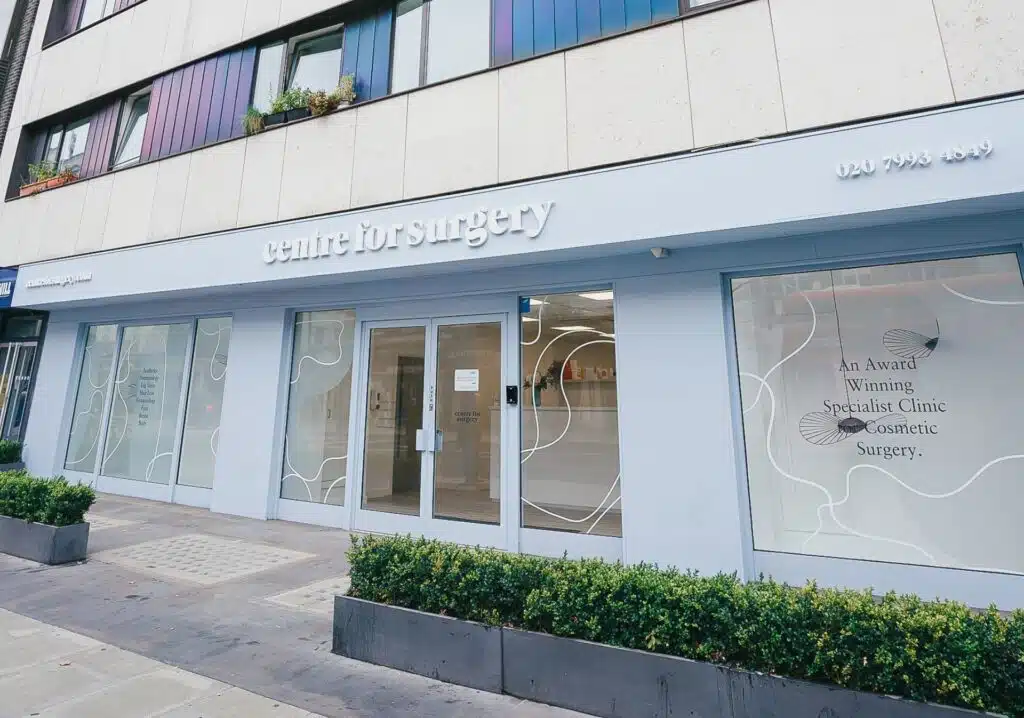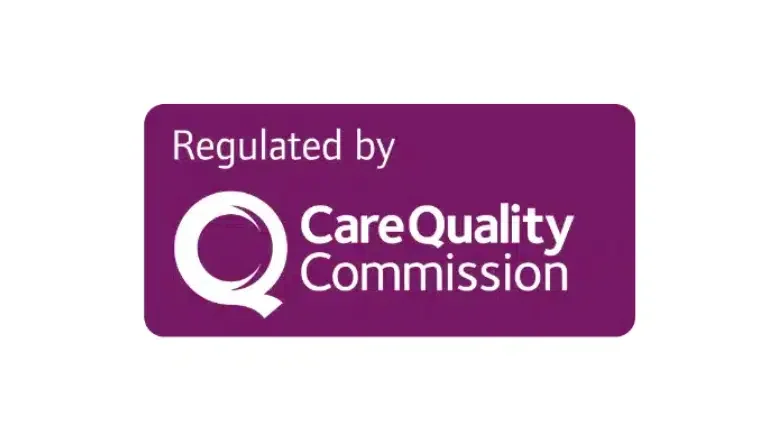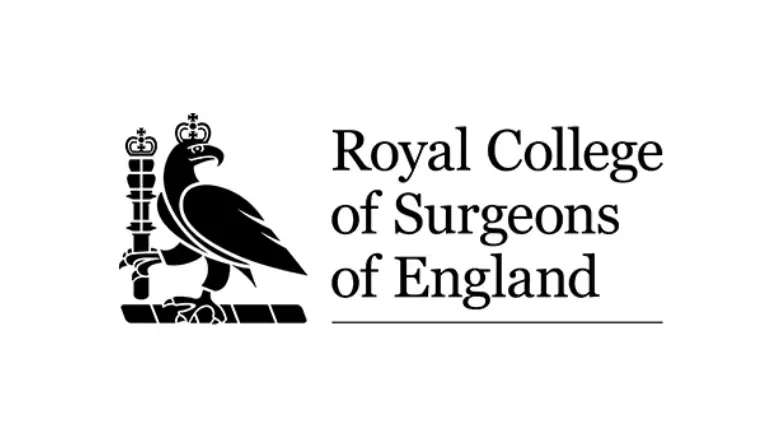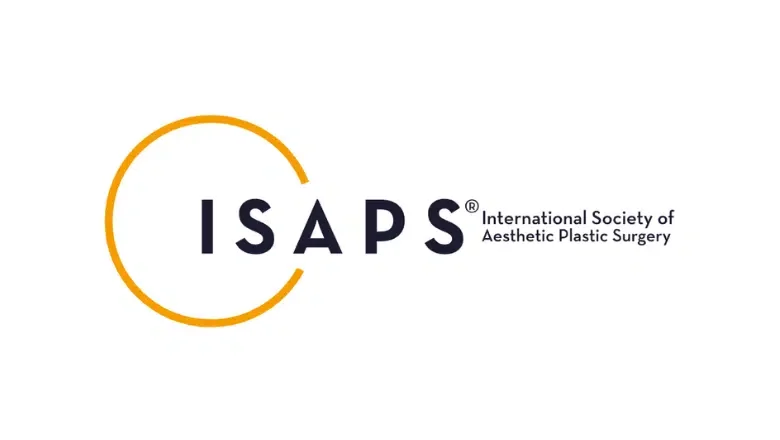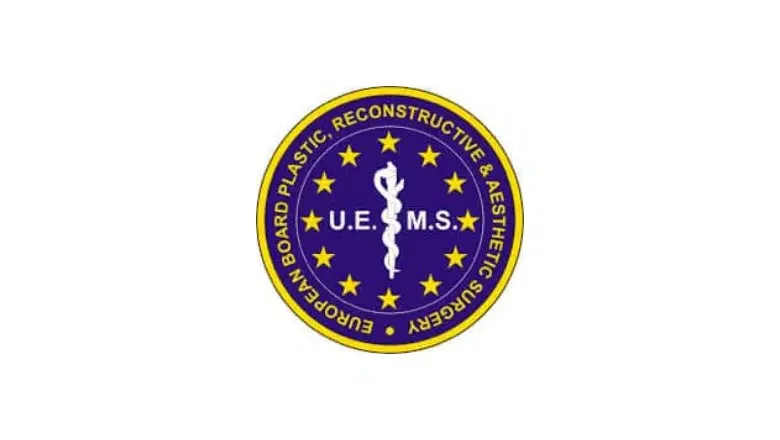If you find yourself pondering the question, “Is a tummy tuck safe?” and whether undergoing surgery is the right choice for you, it is crucial to gather sufficient information about the procedure to help you arrive at a well-informed decision. In this article, we will delve into the specifics of abdominoplasty (commonly referred to as a tummy tuck) safety, touching on various aspects such as side effects, potential risks, and possible complications that may arise.
Centre for Surgery is widely recognised as one of the premier plastic surgery clinics in London. Our team of highly skilled and experienced surgeons routinely perform a wide range of abdominoplasty procedures, including the increasingly popular Brazilian tummy tuck. By offering an extensive array of surgical options, we strive to provide personalised solutions to meet the unique needs and expectations of each patient.
Understanding the safety aspects of the procedure is essential to making an educated decision about whether a tummy tuck is the right choice for you. We will provide an overview of the possible side effects, risks, and complications associated with abdominoplasty, allowing you to assess the potential outcomes better and make an informed choice.
While a tummy tuck is generally considered safe when performed by a qualified and experienced plastic surgeon, it is important to be aware of the potential side effects and risks that may accompany the procedure. Some of these side effects may include pain, swelling, bruising, and temporary numbness. Additionally, there are certain risks, such as infection, bleeding, and adverse reactions to anaesthesia that patients should be aware of before opting for the surgery.
RELATED: What does a tummy tuck involve?
Discuss all potential risks and complications with your surgeon during your consultation. This will provide you with a comprehensive understanding of the procedure and help you make an informed decision about whether a tummy tuck is right for you.
At Centre for Surgery, our expert team of surgeons is dedicated to providing patients with the highest quality care and ensuring the safety of each procedure. By choosing to undergo your abdominoplasty at our state-of-the-art facility, you can rest assured that you are in the hands of some of the best professionals in the field of plastic surgery in the UK.
RELATED: What does tummy tuck recovery involve?
What are the risks and potential complications of a tummy tuck?
While generally safe when performed by a qualified and experienced plastic surgeon, it is crucial for patients to understand the potential risks and complications that may arise during or after the procedure.
The use of anaesthesia in tummy tuck surgery, like in any other surgical procedure, comes with risks. Modern anaesthesia is typically safe, but there is always a possibility of adverse reactions. These can include allergic reactions, fluctuations in blood pressure, and in rare cases, serious complications such as heart attack or stroke.
Infections can occur after any surgery, including abdominoplasty. To minimise the risk of infection, it is vital to follow your surgeon’s postoperative care instructions. These might include taking prescribed antibiotics, keeping the surgical site clean, and watching for signs of infection such as redness, swelling, or discharge.
Although relatively uncommon, excessive bleeding is another possible risk associated with a tummy tuck. If this occurs, it might necessitate additional surgical intervention or a blood transfusion. To reduce the risk, it is important to avoid medications and supplements that can increase bleeding risk and adhere to your surgeon’s preoperative and postoperative instructions.
Blood clots are a serious concern following surgery, potentially forming in the deep veins of the legs (deep vein thrombosis) or travelling to the lungs (pulmonary embolism). These conditions can be life-threatening and require immediate medical attention. To mitigate this risk, your surgeon may recommend early mobilisation, the use of compression stockings, or blood-thinning medications.
A seroma, which is a collection of fluid under the skin, can develop after a tummy tuck. While typically not dangerous, seromas can cause discomfort and increase the risk of infection. If a seroma occurs, your surgeon may need to drain the fluid using a needle and syringe or through a small incision.
Similarly, a haematoma, or a collection of blood under the skin, can form following surgery. Haematomas can cause discomfort and swelling, increasing the risk of infection. Treatment might involve draining the blood or additional surgery to remove the clot.
Temporary numbness or changes in skin sensation around the surgical site are common after a tummy tuck. This usually improves over time as the nerves heal, but in some cases, these changes might be permanent.
Poor wound healing is another potential issue. Factors like smoking, diabetes, obesity, and poor nutrition can contribute to slow or incomplete healing. Sometimes, additional treatments or surgical interventions might be needed to address this problem.
Scarring is an inevitable part of any surgery, including a tummy tuck. The extent and appearance of scars can vary based on skin type, genetics, and the surgical technique used. While scars generally fade and flatten over time, they might remain noticeable. Various treatments are available to improve their appearance, such as silicone sheets, topical creams, and laser therapy.
Asymmetry can occur if the muscles or skin are not tightened evenly during the procedure or if the body heals unevenly. Although minor asymmetry is common and expected to some extent, significant asymmetry might require additional surgery to correct.
There is also a rare possibility of damage to underlying structures such as muscles, nerves, blood vessels, and organs during a tummy tuck. This could result in pain, functional problems, or other complications that might necessitate further treatment or surgery.
Persistent pain is another concern. While some degree of pain and discomfort is expected after a tummy tuck, persistent pain that does not improve might indicate complications or nerve damage. If you experience ongoing pain, it is important to consult your surgeon for evaluation and potential treatment options.
Fat necrosis, or the death of fat cells in the treated area, can lead to firm lumps or areas of hardness beneath the skin. This occurs if the blood supply to the fat cells is compromised during the procedure. While fat necrosis can resolve on its own over time, it might require additional treatment such as massage, steroid injections, or surgical removal.
Unsatisfactory aesthetic results are always a possibility. Although most patients are pleased with the outcome of their tummy tuck, some might be dissatisfied due to issues like loose or wrinkled skin, uneven contours, or an undesirable scar location. In some cases, revision surgery might be necessary to achieve the desired results.
Patients with certain medical conditions, such as diabetes, heart disease, or obesity, face increased risks of complications following a tummy tuck. It is essential to disclose your complete medical history to your surgeon during the consultation to accurately assess your risks and determine if you are a suitable candidate for the procedure.
Lastly, undergoing major surgery like a tummy tuck can have an emotional impact. Some patients might experience feelings of depression, anxiety, or dissatisfaction with their body image after the procedure. It is crucial to have realistic expectations about the surgery’s outcome and to discuss any concerns with your surgeon beforehand.
How to minimise the risk of complications after tummy tuck
To ensure a safe and successful tummy tuck procedure, and to facilitate a smooth recovery process, it is vital to take several preventive measures before, during, and after surgery. Here are detailed recommendations to help minimise the risk of complications:
Choose a Qualified and Experienced Surgeon
The most crucial step in minimising complications is selecting a highly qualified and experienced plastic surgeon. Ensure they are certified by the General Medical Council (GMC) and are members of reputable organisations such as the British Association of Aesthetic Plastic Surgeons (BAAPS) or the British Association of Plastic, Reconstructive and Aesthetic Surgeons (BAPRAS). A skilled surgeon will assess your suitability for the procedure, discuss potential risks, and use the best surgical techniques to minimise complications.
Be Transparent About Your Medical History
Provide your surgeon with a complete medical history, including any pre-existing medical conditions, medications, supplements, and previous surgeries. This information helps your surgeon assess risk factors and offer tailored advice to minimise complications.
Maintain a Healthy Lifestyle
Adopting a healthy lifestyle before and after surgery can significantly impact your recovery. Maintain a balanced diet, exercise regularly, stay hydrated, and avoid smoking and excessive alcohol consumption. These habits improve overall health, boost the immune system, and aid efficient healing.
Follow Preoperative Instructions
Your surgeon will give specific preoperative instructions to minimise the risk of complications. These may include stopping certain medications or supplements, adjusting your diet, and quitting smoking if you are a smoker. Adhering to these instructions is vital for reducing risks during and after surgery.
Adhere to Postoperative Care Guidelines
After surgery, your surgeon will provide detailed postoperative care instructions. These may cover wound care, pain management, activity restrictions, and follow-up appointments. Following these guidelines is crucial for promoting healing, preventing infections, and reducing complications.
Wear Compression Garments
Your surgeon will likely recommend wearing a compression garment post-surgery. These garments help reduce swelling, support abdominal muscles, and encourage proper healing. Follow your surgeon’s instructions on how long to wear the garment.
Take Prescribed Medications
Your surgeon may prescribe antibiotics, pain relievers, or anti-inflammatory drugs. Taking these medications as directed is essential to manage pain, prevent infection, and reduce inflammation, ensuring a smooth recovery.
Avoid Strenuous Activities
Avoid strenuous activities and heavy lifting during the initial recovery weeks, as these can strain healing tissues and increase the risk of complications. Your surgeon will advise when it is safe to resume regular activities and exercise.
Monitor for Signs of Complications
Watch for signs of complications such as excessive pain, swelling, redness, discharge, fever, or shortness of breath. If you notice any of these symptoms, contact your surgeon immediately for advice and evaluation.
Attend Follow-up Appointments
Follow-up appointments with your surgeon are crucial for monitoring your progress, addressing concerns, and identifying potential complications promptly. Attend all scheduled appointments and communicate openly with your surgeon about your recovery.
Maintain a Stable Weight
Maintaining a stable weight before and after surgery is key to ensuring a successful outcome and minimising complications. Significant weight fluctuations can negatively impact results and may require additional surgery. Aim for a stable, healthy weight before undergoing the procedure and maintain it afterward through a balanced diet and regular exercise.
Proper Nutrition
Eating a balanced diet rich in vitamins, minerals, and protein promotes optimal healing after a tummy tuck. Consume whole foods like fruits, vegetables, lean proteins, and whole grains. Consider supplements such as vitamin C and zinc, but consult your surgeon before adding any supplements to your regimen.
Stay Well-Hydrated
Drinking plenty of water is essential for promoting healing and overall health after surgery. Staying hydrated helps flush out toxins, reduce inflammation, and improve skin elasticity. Aim for 8-10 glasses of water daily and avoid excessive caffeine or alcohol.
Get Adequate Rest and Sleep
Prioritise rest and sleep to promote healing and reduce complications after a tummy tuck. Ensure you get ample time to rest and recover during the initial recovery weeks.
Mobilise Early and Gradually
Early mobilisation can reduce the risk of blood clots and improve circulation. Start with gentle walking within the first few days of recovery and gradually increase activity levels based on your surgeon’s recommendations. Avoid strenuous exercises until your surgeon approves.
Be Patient and Follow Your Surgeon’s Timeline
Healing from a tummy tuck requires time and patience. Do not rush the recovery process by ignoring your surgeon’s guidelines. Follow their advice, attend follow-up appointments, and listen to your body’s signals.
Why choose Centre for Surgery for your tummy tuck procedure?
Choosing the right clinic for your tummy tuck procedure is a crucial decision that can significantly impact your surgical outcome and overall experience. Centre for Surgery stands out as a premier choice for several reasons, ensuring that you receive the highest standard of care and achieve the best possible results.
Expert Surgeons
At Centre for Surgery, our surgeons are highly qualified and experienced, with certifications from the General Medical Council (GMC) and memberships in prestigious organisations such as the British Association of Aesthetic Plastic Surgeons (BAAPS) and the British Association of Plastic, Reconstructive and Aesthetic Surgeons (BAPRAS). Our surgeons have a wealth of experience in performing tummy tuck procedures, ensuring that you are in safe and skilled hands.
Comprehensive Preoperative Consultation
We prioritise thorough preoperative consultations to understand your individual needs and goals. During your consultation, our surgeons will conduct a detailed assessment, discuss your medical history, and explain the procedure in depth. This ensures that you have realistic expectations and are well-prepared for the surgery and recovery process.
State-of-the-Art Facilities
Centre for Surgery is equipped with state-of-the-art facilities and cutting-edge technology. Our modern operating theatres and recovery rooms are designed to provide the highest level of comfort and safety. We adhere to strict hygiene and safety protocols to minimise the risk of complications and ensure optimal surgical outcomes.
Personalised Care and Attention
We believe in providing personalised care tailored to each patient’s unique needs. From your initial consultation to your postoperative follow-up appointments, our team is dedicated to offering individualised attention and support. We are committed to making your surgical journey as smooth and stress-free as possible.
Focus on Patient Safety
Patient safety is our top priority at Centre for Surgery. We follow rigorous safety protocols and employ the latest techniques to minimise risks. Our anaesthetists are highly experienced in administering anaesthesia and monitoring patients throughout the procedure, ensuring a safe surgical experience.
Comprehensive Postoperative Support
Our commitment to your care extends beyond the operating theatre. We provide comprehensive postoperative support to ensure a smooth recovery. You will receive detailed postoperative instructions, and our team is always available to address any concerns or questions you may have during your recovery period. Regular follow-up appointments are scheduled to monitor your progress and ensure optimal healing.
Positive Patient Testimonials
Centre for Surgery has a track record of positive patient outcomes and satisfaction. Our patients consistently express their gratitude for the exceptional care and results they have received. Their testimonials reflect the high standards of professionalism and compassion that define our clinic.
Convenient Location
Our clinic is conveniently located on Baker Street in London, making it easily accessible for patients from across the UK and beyond. Our central location ensures that you can reach us without hassle, whether for your initial consultation or follow-up appointments.
Finance Options
We offer flexible finance options, including 0% APR with Chrysalis Finance, making it easier for you to manage the cost of your procedure. Our team can assist you in understanding the available options and choosing the plan that best suits your financial situation.
Ethical Approach
At Centre for Surgery, we maintain an ethical approach to cosmetic surgery. We ensure that every patient is a suitable candidate for the procedure and that they have realistic expectations about the results. Our goal is to achieve natural-looking outcomes that enhance your confidence and well-being.

